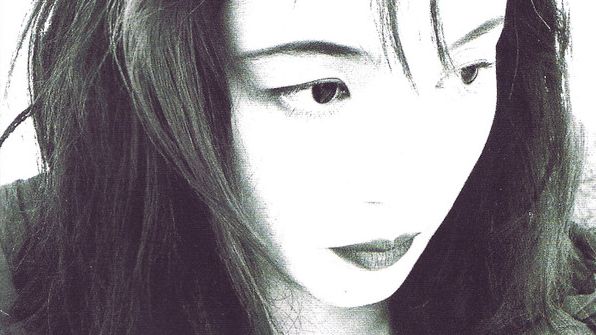You call them. A dial tone. They stopped answering the phone months ago. Still, you try. The empty space between each tone becomes unbearable. You get desperate. Despite the memories of sunset kisses along the Seine and their breath on your neck in a dark London club, there is nothing to salvage. A last attempt. Another dial tone. You get a clue and, with time, self-respect. You hang up, embrace the silence. C’est fini, mon amour.
The romantic preoccupations of Japanese vocalist, multi-instrumentalist, and producer Noriko Sekiguchi—known by the stylized mononym nOrikO—transcend language. She’s in the proud history of voices that break through the rave fog, carrying the la-da-dee, la-dee-das and the sweet dreams of rhythm and dancing. In her songs as POiSON GiRL FRiEND, she recounts love’s highs and lows with simple honesty. Her mischievous sing-song mourns and reminesces in English, French, and Japanese over layered blends of 1980s-style club beats and synthetic strings with the melancholic sensibility of trip-hop. The music blooms to fill the space left in love’s absence.
Born in Yokohama, Japan as the daughter of an international banker, nOrikO spent part of her childhood in Rio de Janeiro. She received primary education in French schools, coming home to a mother with a penchant for chanson. Returning to Japan as a teenager in the ’80s, she took advantage of lax ID requirements to attend legendary Japanese rock DJ Kensho Onuki’s London Nite parties, dancing the night away to ska, soul, and the Beatles.
After securing a contract with Polydor to make a singer-songwriter record, nOrikO embarked on a long trip through Europe. She dove headfirst into London nightlife, rubbing elbows with the New Romantics and the goths, entranced by clubs where a single night hosted wide-ranging sounds: new wave, indie rock, house, techno. One night on a dancefloor in Soho, the DJ played an ambient piano mix of Lil Louis’ acid house classic “French Kiss,” and somewhere in the transcendence of the slowed-down beat and the sampled moan and the bass’ seemingly infinite drone, the Japanese girl who’d arrived in the UK enamored by the Smiths and the Cure decided to focus her energies on the drum machine.
Back in Japan, she made friends at a new wave night called “Club Psychics,” according to one of her few interviews in English, with the blog Fond/Sound. nOrikO and two friends formed POiSON GiRL FRiENDS, taking the name from Scottish art rocker Momus’ second album, 1987’s The Poison Boyfriend. The trio released one self-titled EP, featuring a jangly early version of “Hardly Ever Smile (without you).” The more popular recording of the song opens Melting Moment, reimagined with a chugging drum machine, a low swell of synths, and cinematic strings that stand in somber contrast to the earlier “alternative guitar version.” It is now inarguably nOrikO’s signature song. Her subdued delivery strikes a nerve with the directness of its yearning, whispered over an icy trip-hop beat: “I’d give up all my life for just your kiss.”
